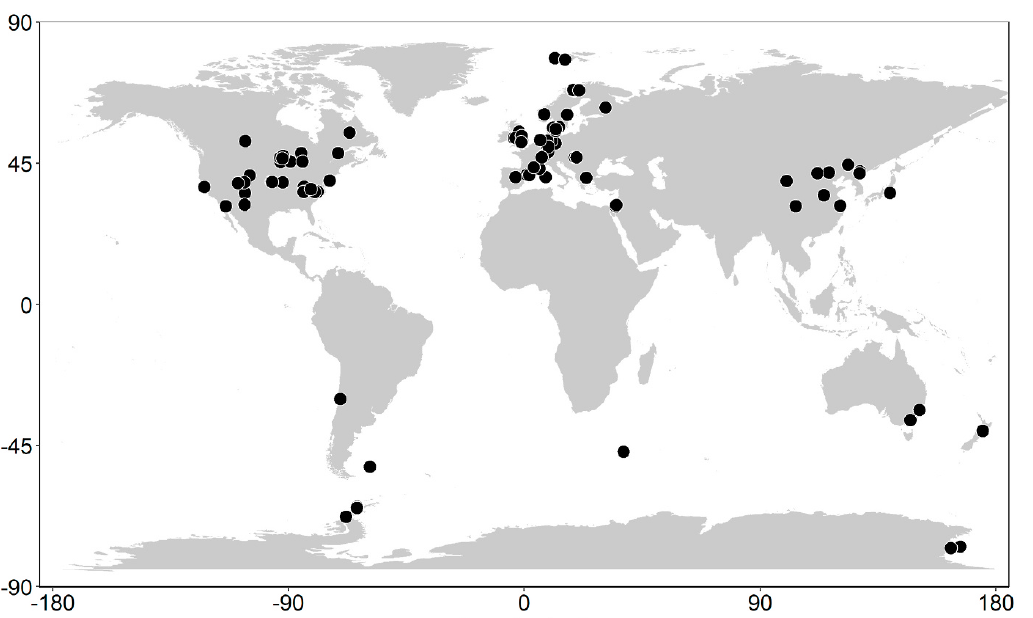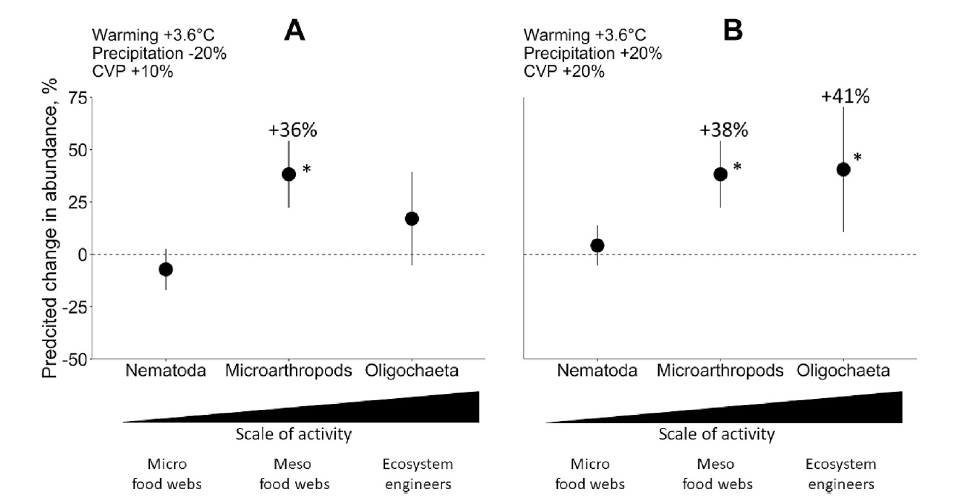Employees of the Laboratory of Soil Zoology and General Entomology IEE RAS Ph.D. Goncharov A.A., Ph.D. Leonov V.D., Rozanova O.L., Ph.D. Semenina E.E., Ph.D. Tsurikov S.M., Ph.D. Uvarov A.V., Zuev A.G. and Doctor of Biological Sciences, Corresponding Member Tiunov A.V. conducted a meta-analysis of data from 86 field experiments that assessed the impact of climate change on the abundance and structure of soil invertebrate communities. The meta-analysis included experiments conducted in a variety of biomes from Eurasia, North and South America, Australia, Antarctica, and oceanic islands. The average duration of the experiments was 51 months.
It was shown that warming and precipitation had a greater effect on the abundance of soil invertebrates than an increase in carbon dioxide in the atmosphere. On average, an increase in air temperature by 1°C correlated with an increase in the number of ticks by 12.5% and a decrease in the number of springtails by 9.6%. An increase in precipitation by 10% was associated with an increase in the number of nematodes by 1.4% and oligochaetes by 34.7%.

Taking into account the estimates of the Intergovernmental Panel on Climate Change (IPCC), with an increase in the average air temperature by 3.6° by 2100, the possibility of strong local changes in the structure of detrital food webs is shown. In arid regions, the formation of soil communities that contribute to carbon mineralization can be expected, and in regions with increased rainfall, they can contribute to the accumulation of carbon in the soil.

Predictions (mean value and 95% confidence interval) of changes in the abundance of three functional groups of soil animals (Nematodes, Microarthropods and Oliform worms) based on the long-term (from 2081 to 2100) SSP3-7.0 scenario developed by the IPCC for regions with reduced (A) and increased (B) precipitation levels. Microarthropods are represented by springtails and mites. The asterisks represent a significant change in abundance.
The study was financially supported by the Russian Science Foundation, project No. 22-76-10027.
The work was published in the journal Soil Biology and Biochemistry (SJR Q1, IF = 8.546)
Anton A. Goncharov, Vladislav D. Leonov, Oksana L. Rozanova, Eugenia E. Semenina, Sergey M. Tsurikov, Alexei V. Uvarov, Andrey G. Zuev, Alexei V. Tiunov (2023). A meta-analysis suggests climate change shifts structure of regional communities of soil invertebrates. Soil Biology and Biochemistry. 181:109014
Related materials:
Kommersant: "Live indicators of carbon balance"
